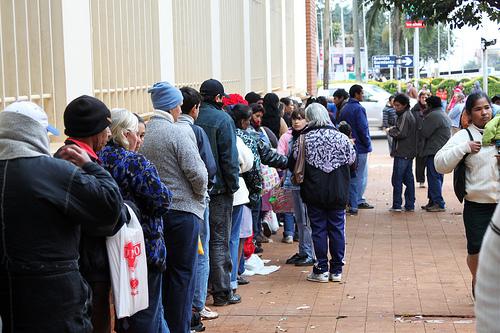
Long Term Joblessness

The unemployment statistics in America are confusing. Sometimes you will see unemployment go down without jobs being created. How can this be? As it turns out there are many different definitions of unemployment and the number you see is only one of them. In fact, if you don’t have a job for a certain amount of time, you’re considered to be “out of the workforce,” and no longer counted in the common measure. As it turns out, long-term joblessness is a danger to societies and this has implications for many of us in our personal life.
Measures of Unemployment
In understanding the impact of long term joblessness, it’s good to understand how unemployment rates are calculated. In America there are six different unemployment numbers, U1 through U6:
- U1: Percentage of labor force unemployed 15 weeks or longer.
- U2: Percentage of labor force who lost jobs or completed temporary work.
- U3: Official unemployment rate per ILO definition.
- U4: U3 + “discouraged workers”, or those who have stopped looking for work because current economic conditions make them believe that no work is available for them.
- U5: U4 + other “marginally attached workers”, or “loosely attached workers”, or those who “would like” and are able to work, but have not looked for work recently.
- U6: U5 + Part time workers who want to work full time, but cannot due to economic reasons.1
So as you can see, sometimes a job seeker simply “gives up.” They’re no longer counted in unemployment statistics, but they certainly don’t have a job. As it turns out, this is actually the worst kind of unemployment, even though we don’t see it measured very often.
Long Term Havoc
A study by the Cologne Institute for the German Economy is one of many supporting the belief that the longer a person is out of a job, the less likely they are to return to the workforce.2 Their job skills atrophy and they lose hope. They basically get locked into a self-reinforcing cycle of poverty. You may know someone like this, who used to be in the workforce, but now seems unable to return.
Think of all the ways in which this affects people’s lives. Think about what being in prison for a few years means for your odds of employment, even disregarding the effect the sentence will have on people’s willingness to hire you. You have whole communities who don’t believe they can find a job and thus make it true in their own mind. As a society this kind of long-term unemployment can be decimating, but it also has implications for you personally.
What Does this Mean For You
For individuals like you and I this is something to consider as well. At some point it may make sense to take a job in which you are underemployed, just to keep your frame of mind as a “worker.” Rather than become chronically unemployed, it may make sense to do some work that helps you keep your professionalism as well as the mindset of a worker. This can also help with the bills a little bit. The only concern is to make sure that taking some temporary work doesn’t deter you from finding a job that truly makes use of your skills.
Photo Credit: Hamner Fotos













Leave a Reply